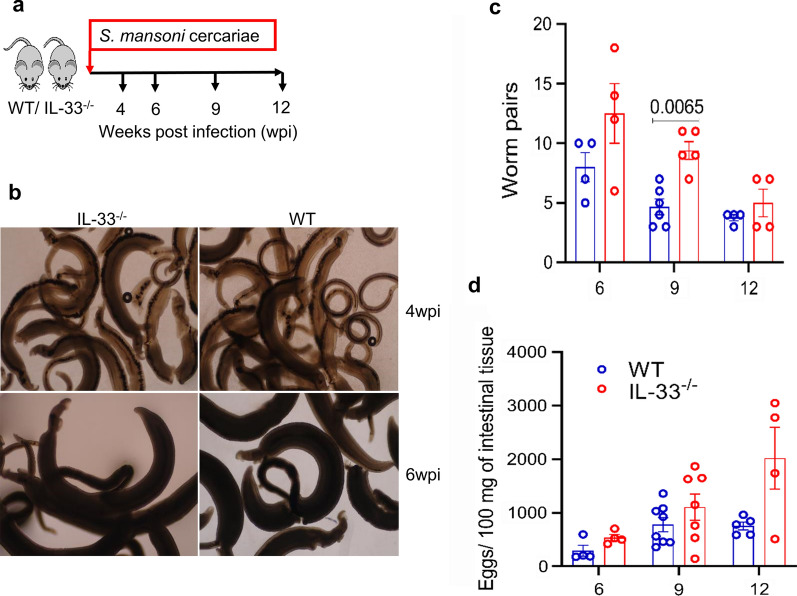Fig. 1.
Interleukin-33 (IL-33) deficiency does not affect Schistosoma mansoni worm maturation and the number of eggs in intestinal tissues. a Female IL-33−/− and wild-type (WT) BALB/cCrSlc (BALB/c) mice (4–8 animals per group) were subcutaneously infected with 50 and 35 S. mansoni cercariae for 9 and 12 weeks, respectively, and sacrificed at 4, 6, 9 and 12 weeks post-infection (wpi) to assess the morphology of worms and count the number of worm pairs and tissue eggs. b Representative photographs of the morphology of worms recovered from both mouse genotypes at weeks 4 (upper panels) and 6 (lower panels) at ×40 magnification. c Number of worm pairs from both IL-33−/− and WT mice. d Number of eggs in intestinal tissue. Groups were compared using the unpaired two-tailed t-test with Welch’s correction. Experiments were replicated at least three times. Data are representative of 2 independent experiments with similar results and are presented as the mean with standard error of the mean (SEM). Significance (P value) is indicated above connector bars between appropriate groups. Mouse groups were compared using the Mann–Whitney test at the P < 0.05 level of significance

